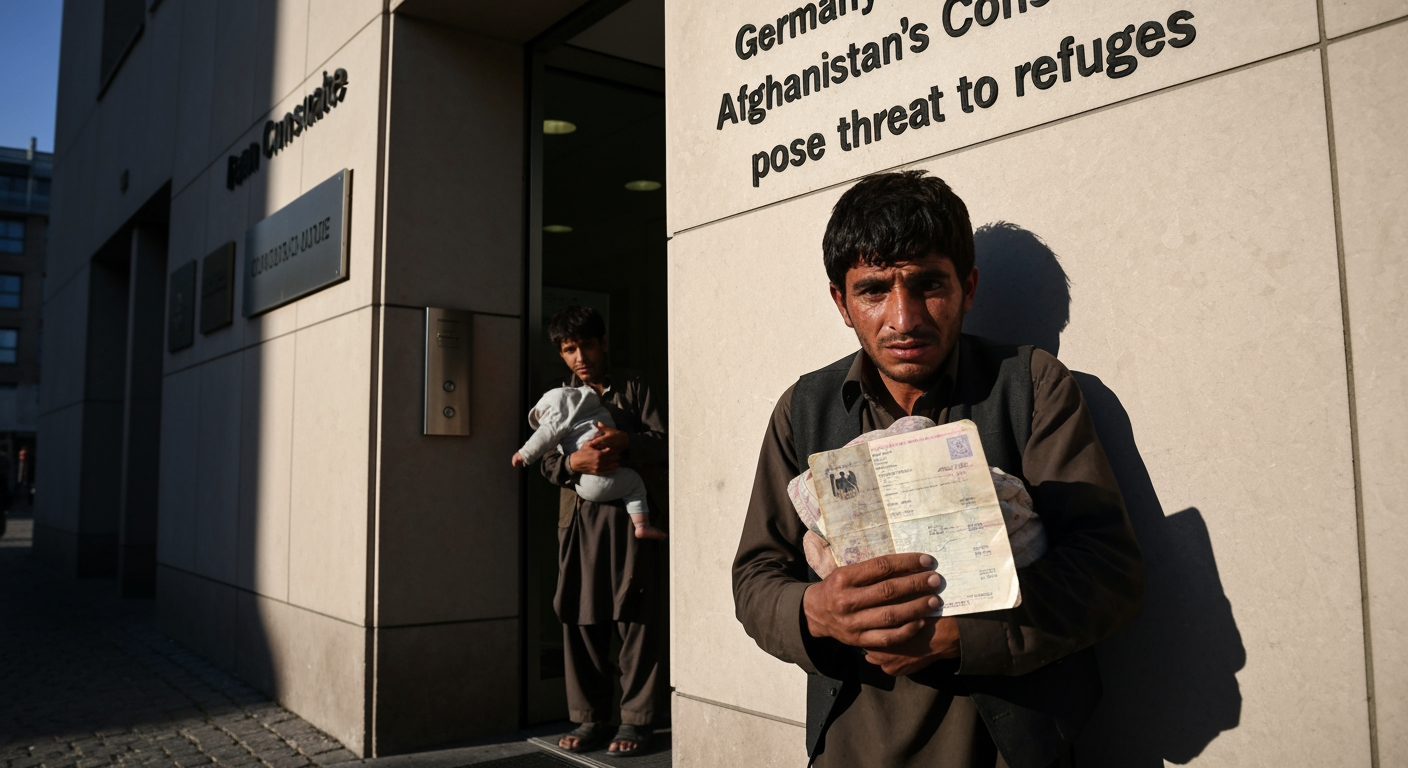Discrimination on the Rise in Germany: A Growing Threat to Social Cohesion

Germany is grappling with a concerning surge in discrimination, impacting various facets of daily life and raising alarms among officials and advocacy groups. Recent data reveals a significant increase in reported cases, particularly those related to racism, antisemitism, and ethnic origin, signaling a potential erosion of the nation's commitment to equality and inclusion.
Tripling of Racist Discrimination Complaints
The Federal Anti-Discrimination Agency (FADA) reported a record 11,405 complaints in 2024, the highest since its inception. Of these, 3,858 cases involved racism, antisemitism, or ethnic origin, more than tripling the 1,167 cases reported in 2019. This sharp increase underscores a growing sense of vulnerability among minority groups and highlights the urgent need for comprehensive measures to address the root causes of discrimination. Ferda Ataman, the agency's commissioner, characterized the situation as a "serious racism problem," emphasizing that "millions of people are more concerned about their safety than ever before."
Discrimination Across Daily Life
The rise in discrimination is not confined to specific sectors but permeates various aspects of daily life. Over 3,000 cases were linked to workplace discrimination, while hundreds more involved public institutions, schools, healthcare, housing, and even the police and judiciary. This widespread nature of discrimination suggests systemic issues that require multifaceted solutions.
Discrimination based on disability ranked second in the 2024 report, with 2,476 complaints, followed by gender (2,133), age (1,091), and religion or worldview (626). These figures highlight the diverse forms of discrimination prevalent in German society, affecting a wide range of individuals and communities.
The General Equal Treatment Act (AGG) and its Limitations
Germany's General Equal Treatment Act (AGG), enacted in 2006, is the primary legislation aimed at combating discrimination. However, its scope is limited, leaving significant gaps in protection. While 43% of the 9,057 complaints falling under the AGG involved racism, antisemitism, or ethnic origin, over 2,300 other cases, many involving state institutions, fell outside its purview.
Ataman has criticized this disparity, stating that "In Germany, people are better protected against discrimination in restaurants than in government offices." She advocates for expanding the AGG to cover public institutions such as schools, police, and courts, ensuring that all individuals are equally protected regardless of the setting.
Impact on Specific Groups
Certain groups within German society experience disproportionately high rates of discrimination. Muslim women and Black individuals, for instance, face growing racial discrimination across public spaces, government institutions, and law enforcement. A 2025 National Discrimination and Racism Monitor (NaDiRa) report found that 54% of those who faced discrimination due to their skin color or religion experienced biased treatment at least once a month.
The NaDiRa report also revealed that Muslim women (61%), Black women (63%), and Black men (62%) encounter the highest rates of subtle discrimination. Skin color was identified as the primary factor in up to 84% of discriminatory incidents against Black individuals, while religious bias was the main factor in up to 51% of cases involving Muslim respondents.
These findings underscore the intersectional nature of discrimination, where individuals face multiple forms of bias based on their race, gender, religion, and other characteristics.
Historical Context and Contemporary Challenges
Racism in Germany has deep historical roots, encompassing the colonial-era genocide of the Herero and Nama people, state-sanctioned racism in Nazi Germany that culminated in the Holocaust, and ongoing issues in post-reunification Germany. After World War II and German reunification, there have been instances of racist street violence and reports of systemic discrimination against immigrants and ethnic minorities.
Today, Germany faces accusations of anti-Palestinian racism, including allegations of censorship, police violence, and the conflation of anti-Zionism with antisemitism. The Bundestag's labeling of the Boycott, Divestment, and Sanctions (BDS) movement as antisemitic, along with allegations by academics and artists of a "witch hunt" against pro-Palestinian activists, has sparked controversy.
The Role of Right-Wing Extremism
The rise in discrimination is closely linked to the growing influence of right-wing extremism in Germany. Far-right politicians and groups have been accused of promoting racist and anti-migrant rhetoric, contributing to a climate of fear and intolerance.
In January 2023, journalists exposed racist plans for mass expulsions, framed as "remigration," drawn up by far-right politicians, business people, and other actors. Such incidents highlight the insidious nature of right-wing extremism and its potential to undermine social cohesion.
Addressing Discrimination: Legal Reforms and Societal Changes
Combating discrimination requires a two-pronged approach: legal reforms and societal changes. Strengthening the AGG to cover public institutions is crucial, as is empowering institutions to push back against far-right influence.
Ataman has called on lawmakers to act decisively, stating that "Illegal parking is punished more consistently than discriminating against people." She emphasizes that "Discrimination must have consequences" and that "We cannot afford to normalize it."
In addition to legal reforms, addressing discrimination requires a shift in societal attitudes and behaviors. Education and awareness campaigns can help to challenge prejudices and stereotypes, while promoting empathy and understanding.
Conclusion
The rise in discrimination in Germany poses a significant threat to the nation's social fabric. The increase in reported cases, particularly those related to racism, antisemitism, and ethnic origin, underscores the urgent need for comprehensive measures to address the root causes of discrimination. By strengthening anti-discrimination laws, promoting societal changes, and combating right-wing extremism, Germany can reaffirm its commitment to equality and inclusion, ensuring a safe and just society for all its residents.


